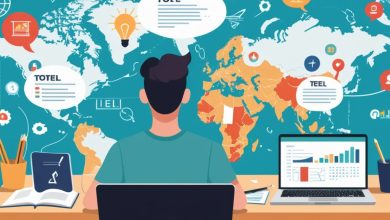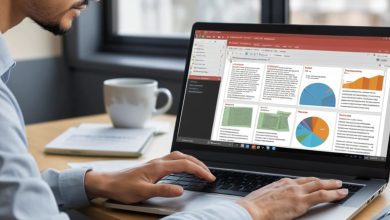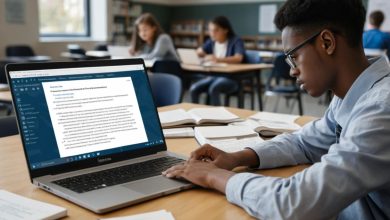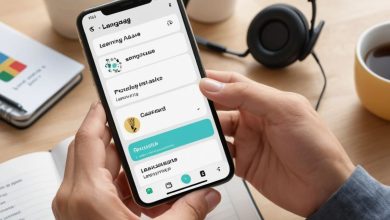The Best Free Academic Resources Online for Students in 2025
Anúncios
Students across Nigeria face growing challenges finding reliable materials for essays, theses, and medical studies. Many hit paywalls or lack institutional database access, slowing their progress. This guide highlights open-access platforms that eliminate financial barriers while maintaining scholarly standards.
Digital innovations now let learners explore peer-reviewed journals and course materials without subscriptions. Platforms like CORE and OAPEN Library aggregate millions of articles, while tools like Zotero simplify citation management. These solutions help verify source credibility – a critical skill in modern academia.
Anúncios
Strategies for efficient searching matter as much as the resources themselves. Students can filter results by publication date or use advanced Boolean operators to pinpoint relevant studies. Nigerian universities increasingly recommend these methods to improve research quality across disciplines.
Global collaboration shapes today’s educational landscape, with institutions worldwide sharing datasets and multimedia content. This shift empowers learners in Lagos, Kano, and beyond to contribute meaningfully to international academic conversations while developing essential digital literacy skills.
Overview of Free Academic Resources Online
Digital learning platforms have transformed how Nigerian scholars approach complex projects. These solutions range from peer-reviewed journal databases to interactive course materials, all designed to support rigorous research without financial strain.
Anúncios
What They Are and Who Benefits
Open-access platforms provide verified content across disciplines, from engineering to social sciences. Undergraduate students in Lagos use them to strengthen essay arguments, while medical researchers in Kano access rare case studies. Three groups gain most:
- Learners at institutions with limited library budgets
- Professionals updating certifications through self-study
- Independent scholars conducting cross-border studies
Enhancing the Student Learning Experience
Multimedia formats like video lectures and 3D simulations help visual learners grasp complex theories. A biology student might analyze cellular processes through interactive models, then test knowledge via quizzes. This variety of tools encourages deeper engagement than traditional textbooks alone.
Collaborative features let users discuss findings with peers worldwide. Nigerian universities increasingly recommend these platforms to build critical thinking – a skill employers value across industries from tech to healthcare.
Understanding the Importance of Peer-Reviewed Articles
Scholarly validation through peer review separates reliable studies from unverified claims. This system ensures only work meeting strict standards reaches publication, protecting both researchers and readers from misinformation.
Why Peer Review Matters in Academia
The evaluation process involves experts scrutinizing methods, data, and conclusions. Three critical checks occur:
- Verification of original contributions to the field
- Assessment of ethical research practices
- Identification of gaps in evidence or logic
This system prevents flawed studies from influencing medical protocols or policy decisions. Nigerian students analyzing malaria treatments, for example, rely on this quality control to avoid citing disproven theories.
Establishing Credibility with Quality Research
Double-blind reviews remove bias by hiding author credentials and reviewer identities. A 2023 study showed articles undergoing this process receive 42% more citations than non-reviewed works.
Researchers strengthen their work through reviewer feedback before publication. This collaborative approach elevates the entire field by ensuring only robust findings enter academic discourse.
Students who master this concept produce higher-quality papers. They learn to distinguish preliminary findings from vetted sources – a skill impacting their academic and professional trajectories.
Free Academic Resources Online for Research
Modern scholarship thrives when learners master digital tools that unlock vast knowledge repositories. Journal databases serve as gateways to verified studies, offering structured pathways to credible information across fields like medicine and engineering.
Navigating Journal Databases
Effective use begins with understanding search interfaces. Most platforms provide basic keyword boxes alongside advanced options to filter by year, subject, or document type. A medical student in Abuja might combine “malaria treatment” with date ranges to find recent breakthroughs.
Key features boost efficiency. Alert services notify users about new publications matching their interests. Citation tools let researchers export references instantly – crucial for thesis work. Bookmark functions save time during lengthy projects.
Three strategies enhance database navigation:
- Test search terms across multiple platforms to compare results
- Use Boolean operators (AND/OR) to refine queries
- Review database tutorials to uncover hidden filters
Platforms vary in complexity. Some prioritize simple website designs, while others require technical know-how. Nigerian universities often host workshops to help students maximize these services, ensuring equitable access to global research.
Navigating Open Access Journals
The rise of open-access publishing reshapes how scholars share findings globally. These platforms prioritize accessibility while maintaining rigorous standards, though quality varies widely. Understanding this landscape helps Nigerian students maximize services while avoiding pitfalls.
Features of Legitimate OA Journals
Trustworthy journals follow transparent processes to ensure quality. Look for editorial boards with experts from recognized institutions and clear peer-review timelines. Reputable platforms index their content in databases like DOAJ or PubMed, making verification straightforward.
Three markers distinguish credible publications:
- Detailed author guidelines explaining submission options
- Measured publication frequency (not daily/weekly)
- Impact factors tracked by tools like Scopus
Identifying and Avoiding Predatory Publications
Predatory journals exploit researchers through rapid acceptance promises. “A 2024 study found 68% of questionable publishers contact authors directly via spam emails,” notes a Lagos-based research ethics advisor. Red flags include:
- Fees requested before peer review
- Editors lacking institutional affiliations
- Websites mimicking established journal designs
Students should cross-check journal data through university library services. This safeguards against citations that could damage academic credibility over time.
Utilizing Research Databases Effectively
Mastering search techniques transforms how students uncover valuable data in digital libraries. Modern databases offer powerful tools to refine queries, but many learners underutilize these options. Strategic approaches help researchers at Nigerian universities cut through information overload.
Advanced Search Techniques and Filters
Boolean operators act as precision tools. Combining “malaria AND vaccine” with NOT “animal trials” narrows results to human studies. Wildcards like “educat*” find education, educator, and educational in one search.
Filters streamline the process further. A medical student in Abuja might set date ranges to 2020-2025 and select “clinical trials” as the document type. Geographic filters help compare regional analysis methods across Africa.
“Systematic searches prevent missed opportunities. Documenting successful keyword combinations saves hours in long projects.”
Three strategies boost efficiency:
- Use quotation marks for exact phrases: “climate change adaptation”
- Set email alerts for new publications matching key topics
- Bookmark frequently used databases for quick access
Platforms like PubMed and JSTOR provide tutorials explaining their unique search syntax. Students who master these services produce higher-quality papers while reducing research time by up to 40%.
Incorporating Multi-Disciplinary Tools
Modern problem-solving demands expertise across traditionally separate fields. Platforms combining science, language, and business content help Nigerian students tackle complex challenges through interconnected learning.
Integrating Science, Language, and Business Content
Cross-disciplinary tools reveal unexpected connections. A medical student in Ibadan might analyze public health data using statistical models from economics. Language students often apply linguistic theories to improve technical documentation in engineering firms.
Three strategies enhance multi-disciplinary research:
- Compare methodologies: Apply lab experiment protocols to social science surveys
- Use language translation tools to access international business case studies
- Combine qualitative and quantitative data for comprehensive analysis
“The best innovations emerge when students cross-pollinate ideas from different fields. Our graduates now solve energy crises using marketing frameworks.”
This variety of content prepares learners for hybrid careers. Those studying climate science might need to present findings to business investors, requiring both technical knowledge and persuasive communication skills.
Effective navigation involves understanding each field’s citation norms. A language research paper prioritizes primary sources, while science journals emphasize recent peer-reviewed studies. Mastering these differences builds adaptable critical thinking.
Leveraging Free Courses for Academic Growth
Structured online programs now empower Nigerian learners to expand expertise beyond traditional classrooms. Leading platforms deliver specialized courses from global institutions, breaking geographical and financial barriers.
Top Platforms Offering Free Online Courses
Platforms like Coursera partner with Yale University and others to offer no-cost programs. Key options include:
- Business Analysis: Process management and financial market strategies
- Data Science: Python programming and AI applications
- Cybersecurity: Foundational principles for beginners
Courses adapt to varied schedules, with durations from 2-hour modules to 6-month certifications. Multilingual support in Arabic, Japanese, and Spanish broadens accessibility across Nigeria’s diverse regions.
Benefits of Enrolling in Free Courses
Self-paced learning allows students to master skills while managing university workloads. Three advantages stand out:
- Exposure to industry-leading tools like generative AI and content creation software
- Peer-reviewed projects that simulate workplace challenges
- Progress tracking through quizzes and graded assignments
“Certificates from recognized platforms signal adaptability to employers—a critical edge in Nigeria’s competitive job market.”
From beginner to advanced levels, these programs help bridge gaps between academic theory and practical application. Learners gain credentials that validate their expertise without financial strain.
Integrating Free Tools in Science and Language Studies
Modern scholars increasingly merge analytical and linguistic skills to address complex challenges. Platforms combining data analysis and language capabilities empower Nigerian students to conduct robust research while communicating findings globally.
Data Analysis and Language Learning Tools
Science students leverage tools like Python and R to process complex datasets. These platforms handle statistical modeling and visualization without licensing fees. Google Colab provides cloud-based coding environments accessible even on low-spec devices common in Nigerian universities.
Language applications complement technical work. Students studying epidemiology might use Duolingo for French proficiency to access West African health reports. Three key benefits emerge:
- Enhanced ability to interpret multilingual data sources
- Improved collaboration with international research teams
- Streamlined presentation of findings across cultural contexts
“Mastering both spreadsheets and Spanish verb conjugations makes our graduates adaptable problem-solvers in multinational settings.”
This dual focus builds portfolios showcasing technical rigor and cross-cultural communication. Students analyzing climate science data can present actionable insights to policymakers in Lagos and international NGOs simultaneously.
Exploring Business and Technology Resources
Nigerian students now merge business strategy with technical expertise to meet evolving market demands. Leading platforms deliver specialized courses that bridge theory and practice, preparing learners for roles in finance, tech startups, and corporate management.
Accessing Business and IT Courses
Practical business programs cover financial markets and process optimization. Key offerings include:
- Risk assessment frameworks for investment decisions
- Digital marketing strategies using real-time data
- Supply chain management simulations
Technology modules focus on emerging tools. Microsoft’s AI development courses and IBM’s cybersecurity certifications provide hands-on experience. A Lagos computer science student recently noted:
“Building machine learning models through guided projects helped me secure an internship at a fintech firm.”
Three advantages define these programs:
- Industry-aligned analysis techniques
- Portfolio-ready case studies
- Global certification pathways
Courses adapt to various skill levels. Beginners learn Python basics, while advanced students tackle neural networks. This development of technical fluency complements traditional degrees, making graduates competitive in Nigeria’s tech-driven economy.
Resource Management for Students in Nigeria
Educational progress in Nigeria increasingly depends on strategic alliances between local expertise and global knowledge networks. Limited infrastructure and financial barriers push learners to adopt creative solutions for accessing data and scholarly content. Partnerships between Nigerian institutions and international organizations now bridge these gaps.
Local and International Academic Solutions
Platforms like CORE aggregate over 219 million articles, giving students direct access to research from around the world. Mobile-friendly interfaces help overcome bandwidth challenges common in Lagos or Kano. Offline features let users download materials during stable connections for later review.
Courses from global institutions via edX and similar services supplement classroom education. These tools address Nigeria’s focus areas like renewable energy and public health. A medical student in Abuja might study epidemiology through video lectures while analyzing regional disease data.
Effective management involves balancing local needs with international standards. Students verify sources through university libraries and apply region-specific filters when searching global databases. This dual approach builds skills to contribute meaningfully to conversations around the world while advancing Nigeria’s development goals.
FAQ
How do peer-reviewed articles improve research credibility?
What features distinguish legitimate open-access journals?
Which platforms offer high-quality courses without cost?
How can students avoid predatory publications?
What tools assist in data analysis for science students?
Are there localized academic solutions for Nigerian students?
How do advanced search techniques improve database navigation?
Can free courses enhance career credentials?
What interdisciplinary tools integrate science and business content?
How do open-access journals impact global research access?
Published on: 28 de July de 2025








